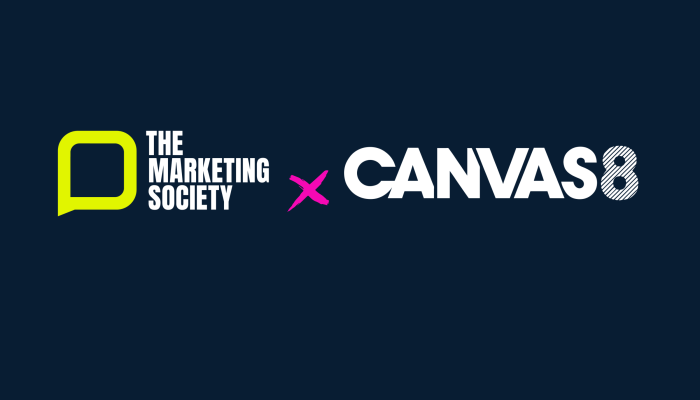CMOs in the Asia Pacific region that succeed understand the takeoff points that make or break categories and align their distributors across nations. At least that’s part of the many tactical conclusions in a new report by Nielsen. The report, titled "Rethinking ASEAN: Dispelling 8 Myths About Consumer Markets", uncovers the current and future potential consumer demand for this key region. Perhaps the most striking of the tactics highlighted, is the need for developing categorical activation points on a micro region basis and to establish strategies targeting specific segments and regions. As more companies enter macro and micro categories under similar value propositions, legacy companies in the region are struggling to connect on brand instead of price, the latter of which is the first path towards commoditization. There are many paths to avoiding that and the tactful application of technology can not only aid in brand building but also add rigor to its tracking.
Sasha Strauss, professor of brand strategy at UCLA, defines brands as a combination of promise and action. Simply put, what are you promising, and what will you do to deliver on that promise. In the twenty first century, broadcast media side of technology has proven its effectiveness in helping communicate the promise of a brand. But often times, technology’s role doesn’t stop there, and in fact can be critical towards the brand building side with action and delivery.
In a world of clutter, both in marketing campaigns and brand experiences, successful businesses invest budgets towards customer retention as well as customer acquisition. A common sight to behold in Singapore is the sea of change within the hospitality industry. While there have been significant investments made around the world to ease the process for hotel booking or reservations, there is less attention after the fact. Which is why guests at the Starwood Hotels and Resorts were raving on about the empowering access granted through the hotel's app. Guests can book rooms, check in, and then use their phones to enter their room, rendering in-person interaction with hotel staff optional.
Brand building also occurs when the companies play the long game. The “Care Counts” campaign saw Whirlpool donate washers and dryers to lower income schools with an ambition to help students have clean clothes and feel more confident. The effort resulted in both higher student attendance and increases in concentration levels during class. While the action seems simple, the insight was only possible by using technology to view data in different ways and identify real insights about barriers to student performance. Developed by DigitasLBi Chicago, the “Care Counts” campaign won a Creative Data Grand Prix at Cannes this year.
Red Dot Network in Myanmar
As the general manager of product marketing and communications for the Red Dot Network, Sadia Komal Rashid handled three main business lines; Top Up, Red dot Pay and Red dot Rewards. The biggest issue companies face in Myanmar is the lack of online payment options. To solve this, the Red dot Pay offered companies to join the Red dot Network and enable their consumers to purchase prepaid pins from any of the 10,0000 stores all over Myanmar and use those pin to purchase items online. When she joined the company in 2015, there were only 2,500 shops, experiencing a 400% increase within a year. This was achieved by engaging two audiences - shop owners, and the end consumers.
The merchant based audience was engaged with direct mail, digital, the Red Dot magazine, and access to the Top Seller Club. The latter shared a leaderboard of targets reached and rewards allotted in the network. End consumers were made aware using public spaces, rewards, digital, and mass communication. The latter proved more effective with a viral radio jingle that played during national broadcasts.
Asian Paints in India
Coming in at fourth place in the 2016 brandZ ranking for three years in a row, Asian Paints has been creating a seamless brand since it started working with FITCH in 2008. Andrew Crombie and his Singapore team collaborated with the Mumbai office of FITCH to integrate Asian Paints' online platforms, mobile applications, out of store pop-up events, service and staff plans and magazines. The flagship revamp started with the understanding that the Indian consumer market consider colour to be sacred when it came to home decoration. So the goal was to make the people more colour confident. This was executed with interactive digital integrations in flagship stores that were built to educate and inspire, rather than sell.
The purpose of these stores was for people to experience how colour could transform their home by stepping into the 'colour cloud' light installation. After experiencing the store, visitors can remodel their own homes with color, viewing 3D models of what their new home would look like, exploring color schemes, and concluding the process with a unique code associated with their visit, which can be handed to a distributor in order to match the preview colors with the intended purchase.In the aftermath of this approach, a nationwide network of 50,000 paint shops and distributors experienced a 35% increase in sales.
Wowbox in Myanmar
At the mention of the internet, most people in Myanmar immediately think of Facebook. Almost all the internet users in Myanmar have Facebook accounts and the majority of them use Facebook Daily, even as their search engine. This means that new mobile applications are struggling to gain market share and maintain active users. In 2015, Line, Wechat, Beetalk and a few other messaging apps spent around US$ 2 Million USD in advertising to win market share from Facebook and Viber (source: Nielsen MMRD). WeChat and Beetalk were able to achieve a minor percentage of market share, but struggled to maintain active users.
Set against this market situation, WowBox, a lifestyle mobile app available for all Telenor Users only, tasked Starcom Myanmar with successfully launching their app. Faisal Sheikh, the head of digital at Starcom Myanmar, had to successfully launch the app and help it create relevant localized content around sports, entertainment, games, jokes, news, and many others. Launched on the 20th Feb 2017, to date WowBox has over one million authenticated users, expecting to grow to grow with over 680,000 Monthly active users and 250,000 daily active users within five months.
Recruit Lifestyle in Japan
The first time Japan won a bronze Glass Lion at Cannes, was over infertility, a topic that has been discussed in Japan to ad nauseam. A product of Recruit Lifestyle, Seem was launched in September 2016 and is reportedly the “top-selling healthcare kit on Amazon Japan, and 33 percent of men who used the product opted to visit a fertility clinic based on their results” per a story by our Japan editor David Blecken. A campaign launched by Dentsu Y&R for Seem was meant to change attitudes towards infertility treatment to help maintain public focus on the issue and the product. Much of the campaign’s activities have been PR-driven, with validation from government officials and experts in the field. An important feature is an online film in which a couple who are now expecting a baby give their true account of using the product.
A website also provides easily understandable information on the topic and is designed to be updated regularly. Shattering patriarchal norms that place all infertility blame on wives, the campaign sought to encourage couples in buying a home testing kit that recognises if they have a problem, and on a wider societal scale, to open up important conversations and break down taboos. Users receive their results via an app. “The product is meaningful for couples suffering from infertility, but it’s just a test kit, so you still need to go to the hospital to get the right treatment,” Jiro Hayashi, management partner of Dentsu Y&R explained. “The goal of the communications is to encourage men to go to hospital earlier so they can shorten the time and cost needed for treatment.”
Babar Khan Javed is the editor for Campaign Asia at the Haymarket Media Group. He can be reached on [email protected] and on www.babarkhanjaved.com



